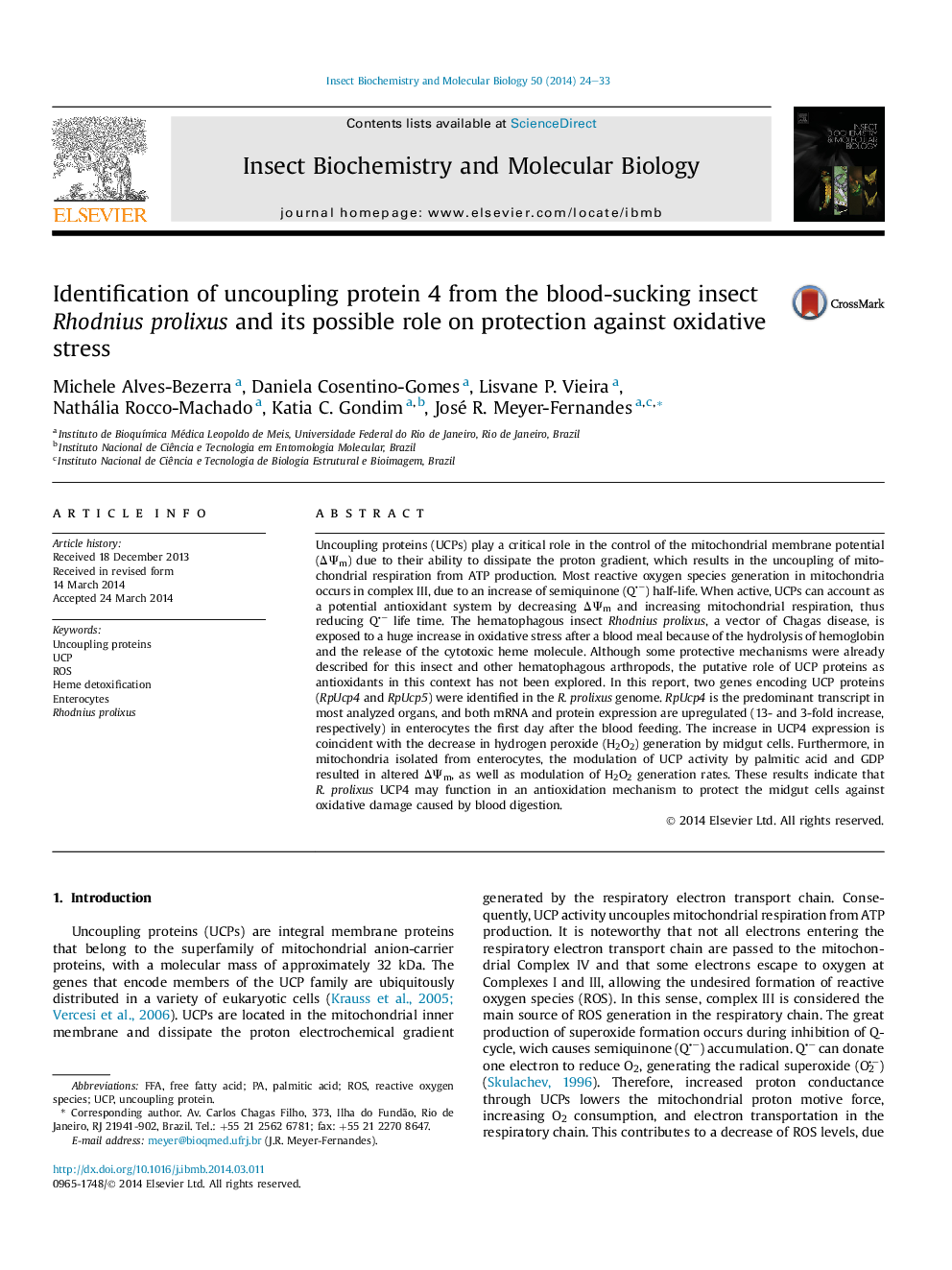| کد مقاله | کد نشریه | سال انتشار | مقاله انگلیسی | نسخه تمام متن |
|---|---|---|---|---|
| 1982123 | 1539502 | 2014 | 10 صفحه PDF | دانلود رایگان |

• Two genes encoding UCP (RpUcp4 and RpUcp5) were identified.
• RpUcp4 was the predominant transcript in most analyzed organs.
• In the midgut epithelium, RpUCP4 mRNA and protein levels were enhanced after feeding.
• Modulation of UCP activity resulted in altered H2O2 generation rate in the midgut epithelium.
Uncoupling proteins (UCPs) play a critical role in the control of the mitochondrial membrane potential (ΔΨm) due to their ability to dissipate the proton gradient, which results in the uncoupling of mitochondrial respiration from ATP production. Most reactive oxygen species generation in mitochondria occurs in complex III, due to an increase of semiquinone (Q−) half-life. When active, UCPs can account as a potential antioxidant system by decreasing ΔΨm and increasing mitochondrial respiration, thus reducing Q− life time. The hematophagous insect Rhodnius prolixus, a vector of Chagas disease, is exposed to a huge increase in oxidative stress after a blood meal because of the hydrolysis of hemoglobin and the release of the cytotoxic heme molecule. Although some protective mechanisms were already described for this insect and other hematophagous arthropods, the putative role of UCP proteins as antioxidants in this context has not been explored. In this report, two genes encoding UCP proteins (RpUcp4 and RpUcp5) were identified in the R. prolixus genome. RpUcp4 is the predominant transcript in most analyzed organs, and both mRNA and protein expression are upregulated (13- and 3-fold increase, respectively) in enterocytes the first day after the blood feeding. The increase in UCP4 expression is coincident with the decrease in hydrogen peroxide (H2O2) generation by midgut cells. Furthermore, in mitochondria isolated from enterocytes, the modulation of UCP activity by palmitic acid and GDP resulted in altered ΔΨm, as well as modulation of H2O2 generation rates. These results indicate that R. prolixus UCP4 may function in an antioxidation mechanism to protect the midgut cells against oxidative damage caused by blood digestion.
Figure optionsDownload high-quality image (130 K)Download as PowerPoint slide
Journal: Insect Biochemistry and Molecular Biology - Volume 50, July 2014, Pages 24–33